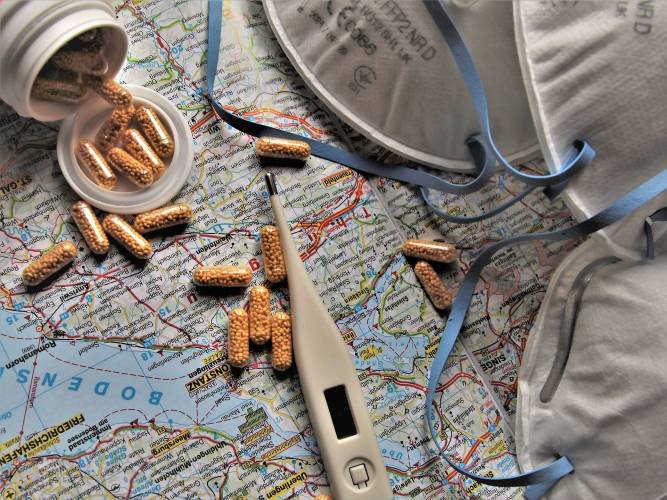New Zealand
New Zealand General Election 2020: Labour's Earthquake
- Details
- Published: Saturday, 17 October 2020 15:28
- Written by Miles Lacey
|
Party |
Party |
% |
Electorate |
List |
Total |
|
Labour Party |
1,169,397 |
49.1 |
43 |
21 |
64 |
|
National Party |
638,393 |
26.8 |
26 |
9 |
35 |
|
ACT |
190,106 |
8.0 |
1 |
9 |
10 |
|
Green Party |
180,224 |
7.6 |
1 |
9 |
10 |
|
Māori Party ** |
23,938 |
1.0 |
1 |
1 |
|
|
New Zealand First |
63,447 |
2.7 |
- |
- |
- |
|
Others |
115,967 |
5.0 |
- |
- |
- |
|
TOTAL |
2,381,472 |
72 |
48 |
120 |
State of parties after the count on election night (Turnout 82.5% - up 2.7% on 2017)
(*Special votes (overseas votes) yet to be counted ** Māori Party lead Labour in electorate -special votes will determine outcome)
A political earthquake struck New Zealand on general election night with the Labour Party securing a second term in office with an absolute majority. This is the first time since the MMP voting system was introduced in 1996 that a political party has won such a majority.
Budget 2020, COVID-19 elimination, and the new normal
- Details
- Published: Friday, 24 July 2020 13:16
- Written by Sione Ma'u
The New Zealand Minister of Finance, Hon. Grant Robertson, delivered the budget on 14 May 2020. Due to the COVID-19 pandemic the original budget had to be scrapped. The new budget is dubbed "Rebuilding together" and its main focus is on jobs.
The main budget item, whose cost dwarfs all others by an order of magnitude, is the $50 billion COVID Response and Recovery Fund (CRRF). Most of the money is to save businesses with wage subsidies and tax relief, and launch a number of major infrastructure projects to create more jobs. About $30 billion of this fund has already been committed. This also includes ongoing costs associated with keeping COVID-19 eliminated from New Zealand. Everyone entering the country is put up, for 14 days, in hotels which have been repurposed as quarantine facilities. People are tested twice during quarantine - near the beginning (day 3) and near the end (day 12) of the quarantine period, before being cleared to enter the country proper.
Read more: Budget 2020, COVID-19 elimination, and the new...
New Zealand: Covid-19 Response
- Details
- Published: Sunday, 12 April 2020 12:32
- Written by Sione Ma'u

Image:Pixaibay
"Events on a world scale are moving at breakneck speed. The new coronavirus (COVID-19) has set in motion a chain reaction, which is upending any semblance of stability in one country after another. All of the contradictions of the capitalist system are coming crashing to the surface."
Hamid Alizadeh, Coronavirus pandemic opens a new stage in world history. www.marxist.com, 13 March 2020
The breakneck speed of events was evident here in New Zealand. On 1 March we had one confirmed case of COVID-19, a NZ resident returning from Iran. Two weeks later, we had 10. Then over the space of a week, the number of cases soared to more than 100. On the weekend of March 21-22 the government closed the borders to all but returning NZ citizens and residents. Finally, on 25 March the country was put into a complete lockdown. All worksites are now closed except for an approved list that provides essential services, such as food and medicine. Apart from essential workers, no-one can travel more than 2km from their place of residence. People can buy groceries and go for a walk to get fresh air. They must observe social distancing and interact only with people in their 'bubble', the handful of people in their immediate household.
Where did Coronavirus come from, and who will end up paying for it?
- Details
- Published: Monday, 20 April 2020 18:07
- Written by Rufus Tyler
The virus was first detected in Hubei Province, China. Bats were probably the original reservoir. Because humans don't have much close contact with these mammals, it is likely that the virus first jumped the interspecies barrier to another animal, perhaps pangolins, then crossed the barrier again, to humans, in a “wet-market”. Live animal markets house dozens of different species in close proximity in a warm, humid environment. This is the ideal breeding ground for infection. Captive animals are especially susceptible because they are stressed, compromising their immune systems.
Why Labour must learn from the past
- Details
- Published: Sunday, 08 March 2020 01:43
- Written by Editorial Board

